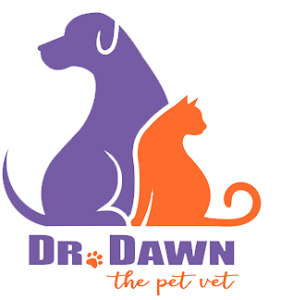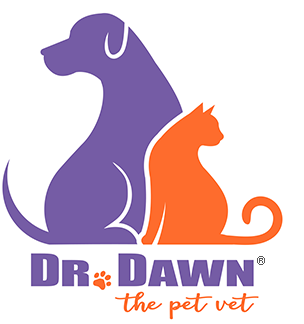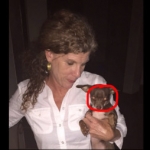 I have many opportunities to talk about the preparation leading to euthanasia with my patients, but don’t often get to talk to them after the experience. Many are recommended to chat rooms, and grief counselors if needed, while most are given a card that links them with a group that meets either in person, or online. It is a way to express yourself , often anonymously, and grieve somewhat freely with like-minded people who may have recently been through a similar experience. I don’t elaborate on those details, not wanting to overload a client with info during one of the harder days of their lives.
I have many opportunities to talk about the preparation leading to euthanasia with my patients, but don’t often get to talk to them after the experience. Many are recommended to chat rooms, and grief counselors if needed, while most are given a card that links them with a group that meets either in person, or online. It is a way to express yourself , often anonymously, and grieve somewhat freely with like-minded people who may have recently been through a similar experience. I don’t elaborate on those details, not wanting to overload a client with info during one of the harder days of their lives.
So, I have found a source of some tips that may help you or a friend that is grieving the recent loss of a pet. There are some universal questions, thereafter , that arise. If you don’t know of anyone you can speak with, these q and a’s may be helpful to you. I hope so. Here are some of them.
I hurt so much! Am I overreacting?
Intense grief over the loss of a pet is completely normal and natural. Every pet owner who considers a pet a beloved friend and companion a true family member, goes through exactly what you are going through now. You are not being overly sentimental, weak or foolish to grieve.
You may have spent 10 or 15 years with this pet, or more.
During that time, the pet was a constant part of your life, always ready to give you love,comfort and companionship. Pets provide unconditional , nonjudgmental love. So don’t be surprised if you feel devastated by the ending of such a powerful relationship, however long or brief. Other people who haven’t experienced the pet/owner relationship may not understand your pain. But all that matters is what you feel. Those feelings are valid, and can be extremely painful. You are not alone though. Thousands of people have felt what you feel, and go through these feelings over and over again as they build loving relationships with new pets.
What can I expect to feel?
Different people experience grief in different ways. Besides your sorrow and loss, which can be devastating in itself, you may experience guilt, anger, denial and/or depression. In terms of guilt, it is pointless and often erroneous to burden yourself with the responsibility for the illness or accident that claimed your pet’s life. Denial is difficulty accepting that the pet is really gone. It is hard to imagine that he/she won’t come running to greet you, or doesn’t need his/her evening meal. Others find it difficult to bring a new pet into the household, feeling it violates the memory of the old pet. Anger may be directed at the illness, for example, that claimed their pet. It can, at times, distract you from the important task of working through your grief. Depression is a natural consequence of grief, but if unchecked, can leave you powerless to cope with your feelings. It can further rob you of motivation to move forward, and dwelling on your sorrow without working on a resolution for it can spiral into a painful trap in which your grief only gets more bitter.
What can do about these feelings?
Be honest with yourself about what you are feeling. Don’t deny your pain, guilt or anger. Only then can you work through these feelings. You have a right to feel pain. Someone you loved has died. Locking away grief doesn’t make it go away. Go ahead and cry, talk it out, or do whatever helps you most. Reminisce about the good times, and the pleasure of their company. Some people find it helpful, for example, to rearrange their schedule to fill in the times they would have spent with their pet. Removing their things from sight is often, but not always, helpful as well. A physical memorial, such as a photo collage, may help, as well as talking to people about your loss.
Who can I talk to?
If you family or friends love pets, they’ll understand what you are going through. Don’t hide your fillings from them in a misguided attempt to appear strong and calm. If your friends don’t see your need for comfort, they won’t be able to provide it. There are pet counselors or pet loss support groups your veterinarian can refer you to if needed.
What should I tell me children?
Some people fear that their children can’t handle the news of the death of a pet. You are the best judge of what your children can and cannot understand, based on their ages and personalities. But don’t underestimate them. Many people underestimate their ability to cope, especially if you are honest with them. It also gives you an opportunity to correct some misconceptions they may have about death and dying. If you say that the pet was “put to sleep”, your children may misunderstand. Don’t say “he/she went away”. A child may may then wait in anguish for the pet to return home, or possibly think they played a role in the pet’s leaving. Make it clear that the pet will not come back, but that he/she is in a happy place at peace. Don’t try to hide your sorrow from them, or they may fear that you won’t understand theirs and hide it from you.
Why are my other pets acting strangely?
Just as you react to the loss of a family member, your pets notice the absence of their companion and friend. You may notice strong grieving over the loss in the remaining pet(s). You may also need to give them extra attention and love to help them through this period.
Should I get a new pet right away?
Generally, the answer is no. Most of us need time to work through grief/loss of a pet before bringing a new pet into the household. I the emotions of loss are left unresolved, you may find yourself resenting the new pet, or making unfair comparisons. A new pet should be acquired for its own sake, to be loved and accepted for its own qualities.
Hopefully, by reading this, you will realize that your feelings are not unusual, but experienced by many in the same situation.
Dr. Dawn
Please share and subscribe here






